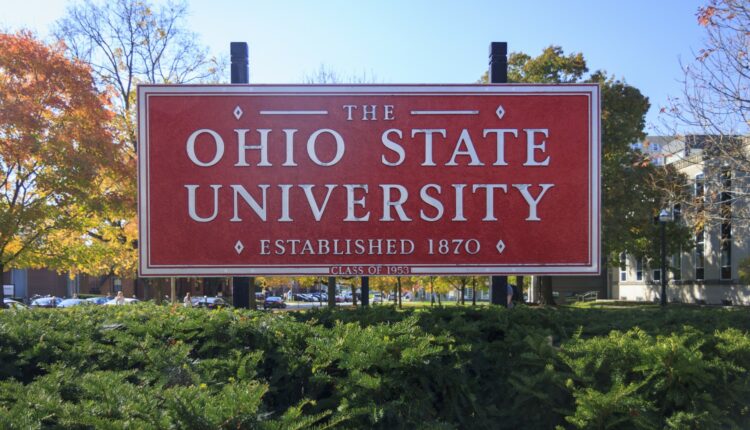Ohio State University: Affordable Learning Exchange grants encourage faculty innovation, student savings
In December, the Affordable Learning Exchange (ALX) awarded grants to 21 Ohio State University educators at the Columbus, Lima and Newark campuses. The funds support affordability and accessibility efforts as well as racial justice coursework. This year’s grants will result in more than $80,000 in direct student savings.
Since its creation in 2016, ALX has saved students more than $25 million through faculty innovation, the adoption of open-source education materials and discounts on textbooks. Many of the grant recipients this year are developing new course materials themselves, either through aggregating online content or drafting their own texts.
President Kristina M. Johnson has expanded the university’s focus on affordability by establishing the Scarlet & Gray Advantage program, which will provide undergraduate students the opportunity to earn their bachelor’s degree, debt-free. This broadens work in the same vein by her predecessor, Michael V. Drake.
Ashley Miller
“President Drake had a keen interest in affordability and excellence, and now we are excited to see President Johnson double down on this commitment with the Scarlet & Gray Advantage program. ALX connects that institutional awareness of affordability and access directly to what’s happening in classrooms to help faculty find alternatives to costly course materials,” said Ashley Miller, associate director of affordability and access in the Office of Technology and Digital Innovation.
While cost savings are the primary focus of ALX, Miller notes that there are additional benefits to faculty.
“We also see a pedagogical transformation. The level of engagement from faculty increases when they’ve curated their own textbook. They get to align it with exactly how they teach the course. Having that control over the course materials causes a chain reaction: the instructor is more engaged, the students then become more engaged, and we have seen metrics that indicate that this engagement leads to better outcomes” she said.
Ashleigh Hardin
Two of this year’s grant recipients agree. Ashleigh Hardin, associate director of first-year writing, will be using her funds to replace the English 1110 textbook with a Carmen Course that includes open-source materials. She hopes it will empower students to consider their course work more thoughtfully.
“By using materials that are more accessible, you are giving students an introduction to networks of information so even if students are not using open education resources in another class, there are still other things they can do,” Hardin said.
At the Lima campus, Margaret Young, associate professor of music, is using two different grants to develop her courses: One will allow for the curation of openly licensed materials for a music and wellness class and the other, which has a special racial justice focus, will go to Young’s Informed Beginning Pianist class. Young will work with a subject librarian to source materials from various musical traditions and diverse composers.
Margaret Young
“I didn’t want there to be any additional barriers for students on a regional campus to participate in this enriched scholarship,” Young said of her work to lower course costs. Like Hardin, Young also sees benefits beyond financial savings.
“I think by finding ways to make courses more focused and by showing direct application to their goals, students will have a greater level of engagement,” she said.
Young is using the grant funds for her classes in the fall of this year, but she is already discovering new resources, including an interactive map of female composers throughout time and around the world. This type of innovation is exciting to Young.
Susan Williams
“I want to make sure that my students understand that learning doesn’t end with their degree. I’m not done developing or growing,” she said. “I love learning; it’s fun.”
The savings passed on to students, the flexible creativity afforded to instructors and the support of open-source materials have made the grant program a success.
In addition, there is a larger, final benefit to the ALX faculty grants. A 2021 grant recipient, Susan Williams, professor and chair of the Department of English, believes the university’s support of these efforts serves as a model for other institutions: “It is part of our responsibility as a land-grant university to be the people that are seeding some of this – to make materials accessible not just for our students but for students at other places.”

